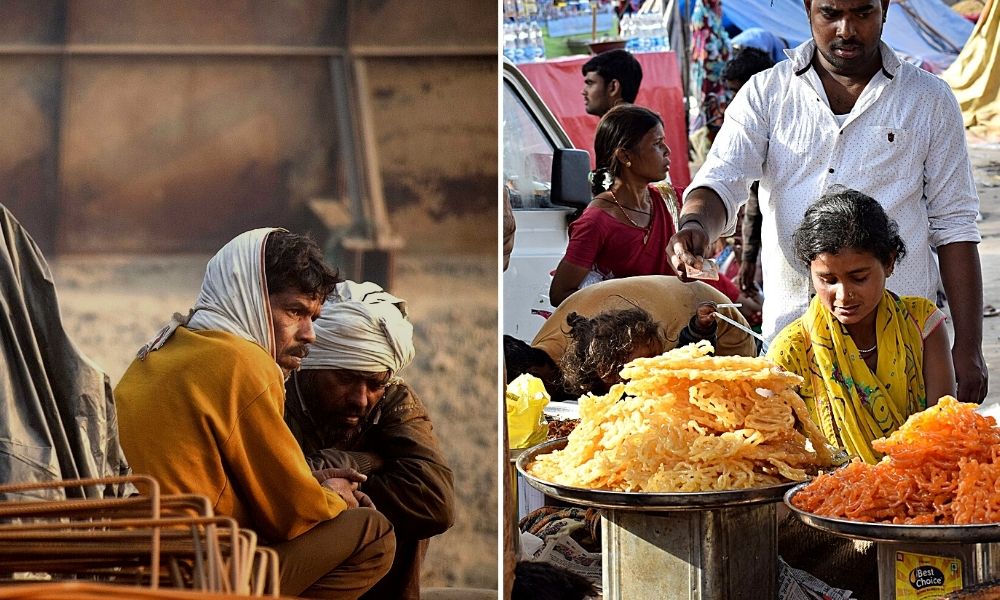World Bank Approves $500 Million Loan To Boost India's Informal Sector
Writer: Nishit Navin
I have lived in 7 cities across India. I completed my graduation with a triple major in English, Journalism, and animation. Currently, I am doing my master's in journalism from SIMC, Pune.
India, 2 July 2021 5:32 AM GMT
Editor : Palak Agrawal |
Palak a journalism graduate believes in simplifying the complicated and writing about the extraordinary lives of ordinary people. She calls herself a " hodophile" or in layman words- a person who loves to travel.
Creatives : Palak Agrawal
Palak a journalism graduate believes in simplifying the complicated and writing about the extraordinary lives of ordinary people. She calls herself a " hodophile" or in layman words- a person who loves to travel.
Highlighting the challenges faced by India, the World Bank said that the government's one-size-fits-all approach towards extending social protection needs to change and state-specific safety nets need to be formed.
In a bid to enable India's informal workforce to tide over the financial crisis triggered by COVID-19, the World Bank on Wednesday, June 30, approved a loan of $500 million (₹ 3,717.28 crore)
In a release, it said that the loan would help create greater flexibility for states to cope with the ongoing pandemic, future climate, and disaster shocks.
"With the new program approved today, states will get greater flexibility and more money in their hands. Devolution of funds under the 15th Finance Commission recommendations will help states create a more adaptive social protection system, provide support to excluded groups and cater to context-specific needs, not only for COVID-19 but also for any future crisis, ecological risk, or natural disaster." World Bank said.
Break-Up Of The Fund
The International Development Association, the concessionary lending arm of the World Bank, will provide $112.50 million. The remaining $387.50 million, will be given as a loan from International Bank for Reconstruction and Development. The maturity period for the load is 18.5 years which includes a five-year grace period.World's Bank Funding To India During COVID-19
The World Bank has provided $1.65 billion (₹ 12,264.54 crore) to India, since the onset of the pandemic, to help it strengthen social protection programs to address the needs of the poor and vulnerable households.
The first operations approved last year provided financial aid in the form of cash transfers to about 320 million individual bank accounts and additional food rations for about 800 million individuals.
World Bank also mentioned the challenges faced by India due to the pandemic. The country's rural-focused safety net program led to an increase in suffering for urban and migrant informal workers. It stated that there is an immediate need for decentralised designing of future relief measures and state-specific safety nets to tackle shocks emerged.
"The government's ongoing reforms are attempting to address the issue of a centralized one-size-fits-all social protection approach," World Bank said.
"In a context where countries are increasingly facing cycles of economic, pandemic, and climate shocks, investment in social protection is aimed at building the resilience of economies and livelihoods of communities. This is the broader objective of the social protection programmes supported by the World Bank in India," Junaid Ahmad, World Bank Country Director in India said.
Target Areas
Stressing on the need for creating digital infrastructure, the World Bank said that a 'National Digital Urban Mission' will integrate the people residing in urban areas through investments at the municipal level.
The digital platform will include gender-disaggregated information on women workers and female-headed households. It will help to address the gender-based service delivery gap, effectively reaching the sections of marginalised women.
Street vendors will also receive a working capital loan of up to ₹10,000. World Bank said it aims to help five million street vendors through the credit program.
Also Read: Credit Is Good But Let's Get The Indian Consumer Back On Track
 All section
All section














